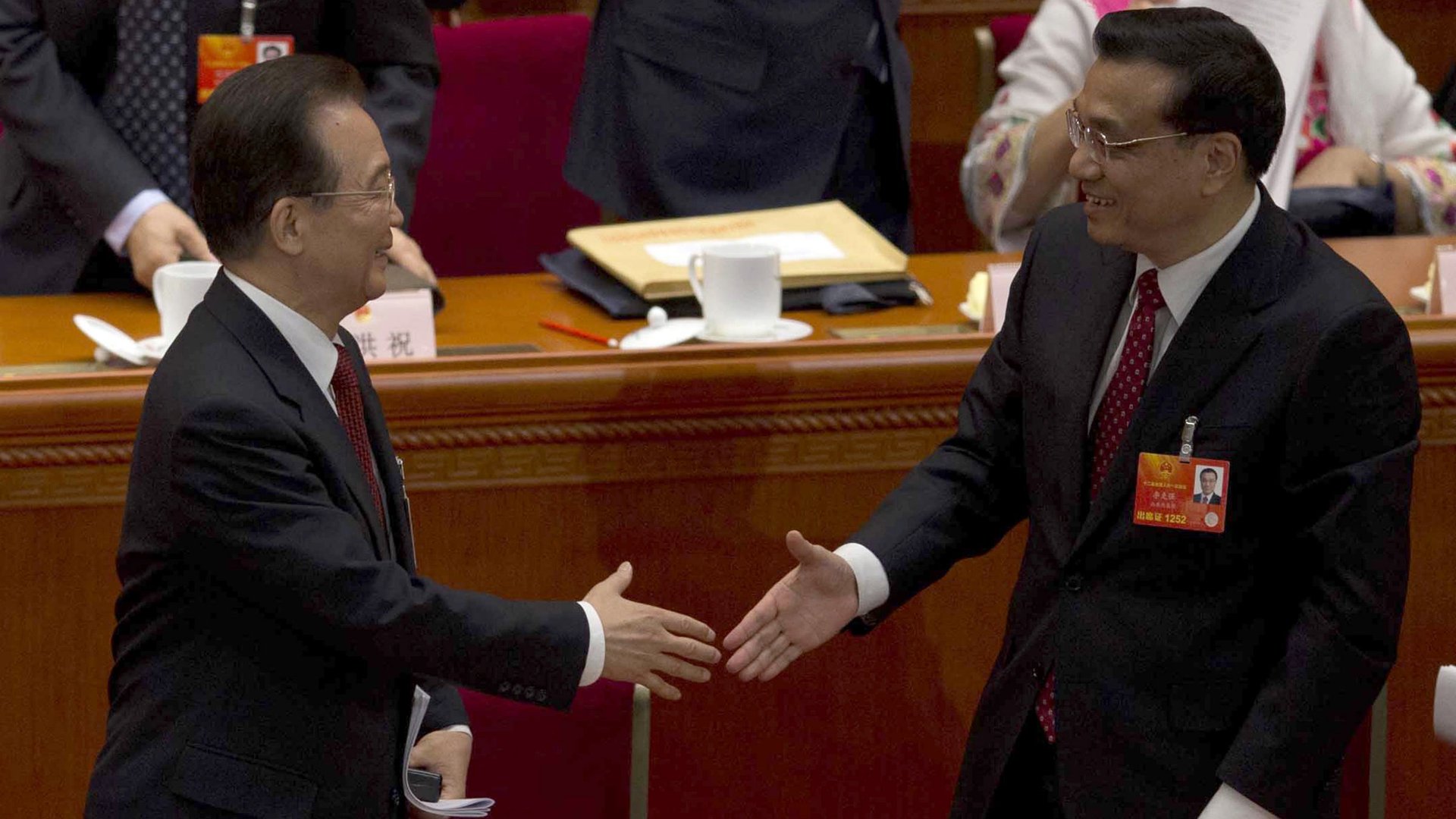China is aiming for the lowest growth in 23 years. Here’s why the world should rejoice
Outgoing Chinese premier Wen Jiabao spoke today at the National People’s Congress, and the big news was that China’s keeping the 7.5% growth target it set for the GDP in 2012. If China meets this target, it would be the slowest growth since 1990 (paywall), reports the Financial Times, and a big break from recent years, when China obsessively targeted 8% growth.


Outgoing Chinese premier Wen Jiabao spoke today at the National People’s Congress, and the big news was that China’s keeping the 7.5% growth target it set for the GDP in 2012. If China meets this target, it would be the slowest growth since 1990 (paywall), reports the Financial Times, and a big break from recent years, when China obsessively targeted 8% growth.
Wen said China “will have to work hard to attain” even a lowered target. Let’s hope so: China desperately needs a slowdown. That’s because the current growth-at-all-costs model is entrenching the power of polluting industries and inefficient, corrupt state-owned enterprises. It’s also widening the gulf between China’s haves and its have-nots, and contributing to a scary real-estate bubble.
China’s going to keep spending. In fact, it’s going to spend more. The 2013 budget that Wen announced targets a deficit of 1.2 trillion yuan ($192 billion), which is about 2% of its GDP. That’s a 400-billion-yuan increase on last year’s budget deficit.
But the critical difference will be where the government invests.
Wen’s budget earmarks 260 billion yuan in public spending—a 27% bump from 2012’s budget. ”Education, health care and social security” are priorities, as Gao Peiyong, head of the National Academy of Economic Strategy told state-owned Xinhua. To that roster, the FT also flags pensions, subsidizes housing and environmental protection.
In addition to taking the GDP pressure off them, this gives China’s new leaders, President Xi Jinping and Premier Li Keqiang, the all-clear to address China’s widening prosperity gap. That’s a big centerpiece of the new administration, and an extension of many of the outgoing premier’s pet policies.
Wen also set a 13% target for M2 money supply growth. (By comparison, M2 growth was 15.9% in January). Much of China’s excesses—in particular, its soaring real estate prices—are made possible by the state banks’ insouciant way with credit. But try as it might, the government still has little control over shadow banking, which will likely rise to fill the void, deepening the risk to local governments, as well as to China’s financial sector.
Changing course on the environment, state-owned industry, income inequality and real-estate prices all carry a cost in terms of GDP growth. Wen’s comments and the policies of incoming leaders President Xi Jinping and Premier Li Keqiang suggest that is a price that China might finally be willing to pay.